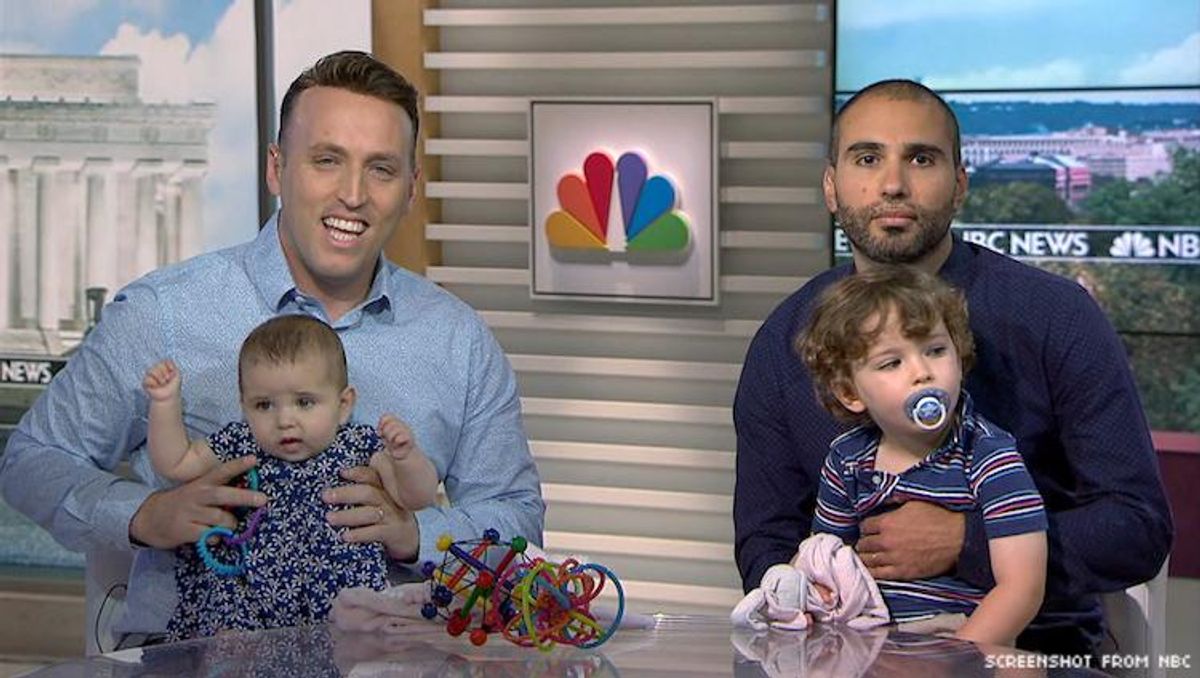Politics
Trump Admin Is Still Denying Child of Same-Sex Parents Her Rights

A June decision recognized citizenship of Kessem Kiviti.
August 20 2020 8:39 AM EST
August 20 2020 9:31 AM EST
By continuing to use our site, you agree to our Private Policy and Terms of Use.

A June decision recognized citizenship of Kessem Kiviti.
The U.S. State Department is appealing a recent court decision that found a child born through surrogacy to U.S. citizens living abroad is a citizen under current law. The Trump administration is refusing to recognize 18-month-old Kessem Kiviti as a citizen because she is biologically related to only one parent. The State Department claims a 2017 policy change requires Kessem must be related to both parents to receive citizenship since same-sex marriage is not the same as marriage between opposite couples.
"It's sad that we have to continue this legal battle," Roee Kiviti, one of the parents, said in a statement. "But we are undeterred. We are doing this not just for our daughter and our family, but so that other families won't have to."
The lawsuit was filed by Immigration Equality, Lambda Legal, and pro bono counsel Morgan Lewis, and argues that the actions by the State Department violate the Immigration and Nationality Act, disregard marriage equality, and unlawfully discriminate against children of same-sex couples as a result. Under the actual law, children born abroad to married U.S. citizens are generally recognized as U.S. citizens from birth as long as one parent has lived in the U.S. at some point.
"The government's attempts to strip Kessem of citizenship are unconstitutional, discriminatory, and morally reprehensible," Aaron C. Morris, co-counsel and executive director of Immigration Equality, said.
Roee and Adiel Kiviti married in California in 2013, and daughter Kessem was born via surrogacy in Canada in February 2019. They also have a son born abroad in 2016, but he is recognized as a U.S. citizen. This head-scratching difference in the citizenship of the Kiviti children is the result of a policy change in 2017 that disregarded marriage equality in determining citizenship. Instead, Kessem is classified as "born out of wedlock" and must have at least one biological parent who lived for five years in the U.S. to be considered a citizen. The Kivitis lived abroad in Israel and now reside in Canada, although both parents are U.S. citizens themselves. Neither parent has resided in the U.S. for five years, and only Adiel has a biological connection to Kessem.
The lawsuit argues the new policy is unconstitutional as it is not equally applied to couples of the opposite sex, assuming that opposite-sex couples are related biologically to the child.
"A federal court has already found the Department of State's policy to be contrary to the law and to raise grave constitutional concerns," Omar Gonzalez-Pagan, senior staff attorney and health care strategist at Lambda Legal, said, describing the administrations as "unconscionable, though not surprising."
Despite the decision to appeal the decision by the State Department, the Kivitis remain optimistic about the case.
"We are proud we taught our little girl to stand up for what's right even before she could crawl," Roee observed after the June decision recognizing Kessem's citizenship. "No child should be denied her rights because her parents are LGBT, and no family should have to endure the indignity we did."
RELATED | Two Dads Adopt Teen Over Zoom Proving Gays Will Find a Way